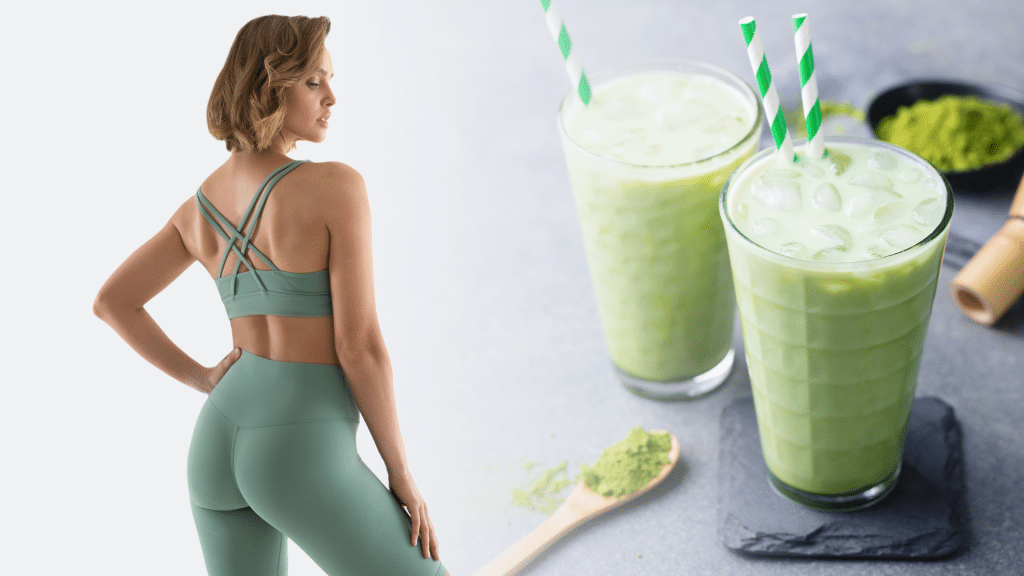Protein is one of the building blocks for a healthy body and is essential for muscle growth and repair. At a cellular level, this nutrient helps to repair damaged cells and tissues, promote healthy hair and nails, build strong bones, and maintain a healthy immune system.
It’s no surprise that many who are getting into fitness are advised to up their protein intake. However, it can be difficult to get enough protein through diet alone, especially for those who are physically active.
As supplementation can be a convenient way to ensure adequate protein, you may wonder if protein powders are right for you. Let’s explore this popular supplement, and what science has to say, from whether it’s necessary for your fitness goals, to when and how you should consume it. Here’s what you need to know.
Always consult a healthcare professional before adding supplements to your diet, especially if you have allergies or specific health conditions.
Do You Need Protein Powder?
Protein powder can be an excellent addition to your daily diet. With your meals, you get some protein from whole foods such as meat, fish, eggs, dairy, legumes, and nuts (10). And of course, some protein sources are better than others.
For instance, animal protein tends to have a higher bioavailability (the proportion of the ingested nutrient that is actually absorbed by the body) compared to plant-based sources (9). We’ll get into this in more detail later on.
You do need protein in your daily diet.
In some cases, getting enough protein through whole foods alone may be challenging.
Protein powders may be beneficial in various cases:
- When you are following a vegetarian or vegan diet
Plant-based protein sources tend to have lower bioavailability when compared to animal sources. Vegans and vegetarians may need to supplement with protein powders to meet their daily requirements (8).
- When you are on a diet for weight loss
Reducing calorie intake can make it challenging to meet your protein needs through food alone. Supplementing with protein powder can help you maintain muscle mass while losing fat (8).
- When you’re exercising for muscle growth
The harder you train, the more protein your body needs to repair and build muscle. Adding a protein shake or two to your diet can help support muscle growth (8).
How Much Protein Powder Do You Need Per Day?
The Dietary Reference Intake (DRI) for protein is 0.03 oz (0.8 grams) per kilogram of body weight for the average adult. However, this may not be sufficient for individuals who are physically active or looking to build muscle (23).
According to the International Society of Sports Nutrition, athletes and those regularly engaging in intense exercise should aim for a higher protein intake ranging from 0.04-0.07 oz (1.2-2 grams) per kilogram of body weight (10).
But how much of this protein should come from supplements?
Many experts acknowledge that protein supplementation may be necessary but that the majority of protein intake should come from whole food sources This is because whole food sources provide not only protein but also essential nutrients, vitamins, and minerals that are necessary for a well-rounded diet (10).
Ideally, no more than 30% of your daily protein intake should come from powders and other supplements. So, if you’re an active individual aiming to consume 5.3 oz (150 grams) of protein per day, no more than 1.6 oz (45 grams) should come from protein powder.
What Is the Most Effective Way to Take Protein Powder?
Research suggests that timing is crucial for optimal absorption and utilization of protein powder. For example, protein consumed immediately after resistance training can help promote muscle recovery and growth (18). On the other hand, taking protein before bed may improve overnight muscle protein synthesis (29).
That being said, timing doesn’t play as big a role as total protein intake throughout the day. It’s more important to ensure you’re meeting your daily protein goals, rather than obsessing over specific timing.
Let’s take a closer look at some best practices for timing protein powder consumption:
To Lose Weight
If you’re trying to lose weight, consuming a protein shake between meals can help keep you satiated and prevent unhealthy snacking. Additionally, incorporating protein powder into your breakfast smoothie can help you feel full and satisfied until lunchtime.
Protein works by reducing levels of ghrelin, the hormone responsible for stimulating hunger. It also increases levels of peptide YY, a hormone that signals fullness and satiety, glucagon-like peptide-1 (GLP-1), which delays gastric emptying and reduces appetite, as well as cholecystokinin (CCK), which also signals satiety (5).
Another way to effectively take protein powder is by using it as a meal replacement, in place of one or two meals per day. This works best when combined with regular exercise and a balanced diet. For instance, you can replace breakfast with a protein shake and have a nutritious lunch and dinner.
To Build Muscle
If you’re looking to build muscle, consuming a protein shake within 30 minutes – 2 hours of a workout can help kickstart the recovery process. This timing is known as the “anabolic window”, where muscles are most receptive to protein uptake (18).
During the anabolic window, your body is in a state of increased protein synthesis and reduced protein breakdown. Although the concept is not well-researched yet, it can be the case that any protein consumed during this time may have a more significant impact on muscle growth (18).
To Maximize Absorption
The type and quality of protein you consume may also affect how well your body absorbs and utilizes it. Whey protein, for example, is considered a fast-digesting protein, meaning it is quickly broken down and absorbed by the body. This type of protein is best suited for consumption post-workout when the body needs immediate protein replenishment (23) (33).
If you want to get a sculpted body, defined muscles, and turn more heads than ever, we’ve got a great protein powder for you. Start your transformation!
On the other hand, casein protein is slower digesting, providing a steady release of amino acids over a more extended period. This type of protein may be beneficial for muscle recovery and growth while you sleep (23) (25).
Other protein powder types, such as plant-based proteins like pea and soy protein, have different absorption rates and may be better suited for certain dietary needs.
To Prevent Age-Related Muscle Loss
As we age, our bodies naturally lose muscle mass (3). Supplementing with protein powder can help by providing essential amino acids for muscle maintenance and growth (24).
Spreading out protein intake throughout the day may be beneficial for older adults, as studies have shown that consuming more than 1 oz (30 grams) of protein in one sitting may not provide any additional benefits (1).
For example, instead of consuming one large protein shake, older adults may benefit more from having smaller servings of protein throughout the day (21). This can include adding a scoop of protein powder to meals or snacks.
To Improve Athletic Performance
For athletes and those regularly engaging in intense exercise, protein powder can also be beneficial for improving performance. Studies have shown that consuming protein before or during prolonged physical activity can help maintain muscle mass and improve endurance (11).
Additionally, incorporating carbohydrates into a protein shake may further enhance athletic performance by providing the necessary energy to sustain physical activity (6).
To Support Overall Well-being
For general health and well-being, you can consume protein powder at any time of day, as long as it fits into your daily protein intake. Whether you prefer it in the morning, as a pre-workout supplement, or before bed – it all comes down to personal preference.
How Do You Use Protein Powder Correctly?
You use protein powder correctly by determining your daily protein intake goals, selecting a high-quality protein powder that fits your dietary needs and preferences, consuming it according to the recommended guidelines, and incorporating it into a well-rounded diet and exercise routine.
1. Determine Your Daily Protein Intake Goals
Recommended daily protein intake varies based on factors such as age, weight, activity level, and overall health goals. Most individuals need around 0.03 oz (0.8 grams) of protein per kilogram of body weight. However, active individuals or those trying to build muscle may require more (12).
According to the International Society of Sports Nutrition, consuming 0.05-0.07 oz (1.4-2 grams) of protein per kilogram of body weight per day may be optimal for building and maintaining muscle mass for active individuals (10).
To determine your specific protein intake goal, you should consult a dietitian.
2. Select a High-Quality Protein Powder
When selecting a protein powder, there are several factors to consider. It’s also crucial to choose a reputable brand and read labels carefully to ensure the product is safe and suitable for your needs.
Type of Protein
There are several types of protein powders available on the market, including whey, casein, soy, egg, pea, hemp, and rice-based proteins. Each type has its own unique characteristics and benefits.
- Whey is one of the most popular and most studied protein powders. It is a complete protein, meaning it contains all nine essential amino acids and has a high bioavailability. It’s derived from dairy and is a fast-digesting protein, making it a good option for post-workout consumption (33).
At BetterMe, we want to give you a fast-track ticket to the body of your dreams. Defined muscles, and increased confidence… it sounds just perfect. You can enjoy all of this with the help of Whey Protein Isolate.
- Casein is another complete protein derived from dairy. It is digested more slowly than whey and may be more beneficial for consumption before bed to support muscle repair during sleep (25).
- Soy is an excellent choice for vegetarians and vegans as it is a complete plant-based protein. It also contains isoflavones, which have potential health benefits (16).
- Egg protein is another complete protein source that is lactose-free, making it an alternative for those with dairy allergies or sensitivities (31).
- Pea protein is a plant-based option that is high in branched-chain amino acids (BCAAs) and has a high satiety value. It’s also hypoallergenic, making it an excellent option for those with allergies or sensitivities (32).
- Hemp protein is an excellent source of plant-based protein that also contains essential fatty acids and minerals like iron and magnesium (2).
- Rice protein is hypoallergenic and easily digestible, making it suitable for those with food intolerances (26). However, it may not have a complete amino acid profile on its own and is often combined with other plant-based proteins for this reason. Please note that hypoallergenic doesn’t mean non-allergenic, but rather that it has a low potential for allergic reactions (3)
When choosing a protein powder, consider your dietary restrictions, personal preferences, and fitness goals.
Macronutrient Profile
The macronutrient profile refers to the amounts of protein, carbohydrates, and fat in a product. Depending on your dietary goals, you may want a higher or lower protein-to-carbohydrate ratio (17).
For example, if your goal is to build muscle mass, you may want a protein powder with a higher amount of protein per serving compared to carbohydrates and fats. On the other hand, if you’re using protein powder as a meal replacement, you may want a more balanced macronutrient profile (13).
It’s essential to consider your overall diet and adjust your protein powder intake accordingly.
Potential Allergens or Intolerances
If you have allergies or intolerances, it’s crucial to read labels carefully and select a protein powder that is safe for you to consume. Many protein powders are gluten-free, dairy-free, and soy-free, but this may not always be the case.
If you have any food intolerances or sensitivities, make sure to choose a protein powder that is free from potential allergens. You can also look for a “certified gluten-free” or “dairy-free” label on the product to ensure it meets your dietary needs.
Additionally, some protein powders may contain dairy or soy ingredients, even if they are not derived from those sources. This is because these ingredients can be used as emulsifiers or stabilizers in the manufacturing process. If you have severe allergies or intolerances, it’s best to choose a product that is specifically labeled as “dairy-free” or “soy-free”. Make sure to consult your physician first
Flavor and Texture
The flavor and texture of a protein powder can greatly affect your overall experience with the product. While some people may enjoy bold, artificial flavors, others may prefer more subtle tastes.
Online reviews are a great way to get an idea of how a particular protein powder tastes and feels. You can also try samples before committing to a larger size or read product descriptions for information on taste and texture.
3. Consume Protein Powder According to the Recommended Guidelines
While protein powder can be a convenient and healthy addition to your diet, its purpose is to supplement your intake, not replace whole foods entirely. It’s generally recommended to consume no more than 1 oz (30 grams) of protein in one sitting (28).
Additionally, it’s essential to consider the rest of your diet and ensure you are getting all necessary nutrients from whole food sources.
Incorporating some form of physical activity into your routine can help optimize the benefits of protein powder and promote overall health and wellness.
Should You Mix Protein Powder With Milk or Water?
You can mix protein powder with either milk or water, depending on your dietary needs and preferences. Milk (dairy or plant-based) provides additional calcium, vitamins, and minerals compared to water.
If you are trying to lose weight or have a dairy intolerance, mixing protein powder with water may be the better option for you. On the other hand, if you’re looking to increase your calorie and nutrient intake, milk may be the better choice.
Other ways to incorporate protein powder into your diet include:
- Adding it to smoothies or shakes
- Mixing it into oatmeal, yogurt, or pancake batter
- Baking with it (e.g. protein cookies or muffins)
Just remember to consider the additional ingredients you’re mixing it with and their macronutrient profiles. For example, adding a banana to your protein shake will increase its carbohydrate content.
Can I Drink Protein Shakes Without Working Out?
Yes, you can drink protein shakes without working out. If you have trouble meeting your daily protein requirements through whole foods, protein shakes can be a convenient and easy way to supplement your intake.
However, keep in mind that protein shakes have calories just like any other food or beverage. Because of this, it might be necessary to adjust your overall diet to account for the additional intake of calories from the protein shake.
Is It OK To Drink Protein Shakes Before Bed?
Yes, it is OK to drink protein shakes before bed. Consuming protein before bed can help promote muscle growth and recovery while you sleep (25).
It’s best to consume a protein shake at least an hour before bed to allow for proper digestion and restful sleep (10).
FAQs
Is It Better To Eat Protein Before Or After A Workout?
It’s better to eat protein 30 minutes to 2 hours after a workout for optimal muscle recovery and growth. However, consuming protein before a workout can also be beneficial for providing energy and preventing muscle breakdown during exercise (7).
So, if your goal is muscle gain, eat protein after a workout. If your goal is to improve athletic performance and/or endurance, consume protein before or during a workout.
Will I Lose Weight If I Drink 3 Protein Shakes A Day?
You can lose weight by drinking 3 protein shakes a day if you are creating a calorie deficit overall. Drinking protein shakes may also stop you from eating high-calorie snacks throughout the day.
However, it’s not recommended to rely solely on protein shakes for weight loss as it’s important to maintain the intake of other essential nutrients. A balanced and varied diet is key for sustainable weight loss (15).
Can I Drink Protein Shakes Every Day?
Yes, you can drink protein shakes every day. Be it for weight loss, or muscle gain, or as a healthier snack option, protein shakes can be an excellent upgrade to your day-to-day diet.
Consider the rest of your diet and make sure you’re getting a balance of nutrients from whole food sources as well.
Conclusion
Protein powder can be an excellent addition to your diet, providing convenient and high-quality protein for muscle growth, recovery, and overall well-being.
However, it’s essential to choose a product that aligns with your dietary goals and needs, including considering ingredients, macronutrient profile, and potential allergens.
Remember to consume protein powder within recommended guidelines and focus on a balanced diet that includes whole foods as well.
DISCLAIMER:
This article is intended for general informational purposes only and does not serve to address individual circumstances. It is not a substitute for professional advice or help and should not be relied on for making any kind of decision-making. Any action taken as a direct or indirect result of the information in this article is entirely at your own risk and is your sole responsibility.
BetterMe, its content staff, and its medical advisors accept no responsibility for inaccuracies, errors, misstatements, inconsistencies, or omissions and specifically disclaim any liability, loss or risk, personal, professional or otherwise, which may be incurred as a consequence, directly or indirectly, of the use and/or application of any content.
You should always seek the advice of your physician or other qualified health provider with any questions you may have regarding a medical condition or your specific situation. Never disregard professional medical advice or delay seeking it because of BetterMe content. If you suspect or think you may have a medical emergency, call your doctor.
SOURCES:
- A moderate serving of high-quality protein maximally stimulates skeletal muscle protein synthesis in young and elderly subjects (2009, pubmed.ncbi.nlm.nih.gov)
- Antioxidant Properties of Hemp Proteins: From Functional Food to Phytotherapy and Beyond (2022.nih.gov)
- A Narrative Review on Rice Proteins: Current Scenario and Food Industrial Application (2022,nih.gov)
- Clinical definition of sarcopenia (2014,nih.gov)
- Clinical Evidence and Mechanisms of High-Protein Diet-Induced Weight Loss (2020,nih.gov)
- Carbohydrate for athletic training and performance (1991,nih.gov)
- Effects of Protein Supplementation on Performance and Recovery in Resistance and Endurance Training (2018,nih.gov)
- Effect of Whey Protein in Conjunction With a Caloric-Restricted Diet and Resistance Training (2017,journals.lww.com)
- Determinants of amino acid bioavailability from ingested protein in relation to gut health (2021,nih.gov)
- Does the Proximity of Meals to Bedtime Influence the Sleep of Young Adults? A Cross-Sectional Survey of University Students (2020,nih.gov)
- Dietary protein for athletes: from requirements to optimum adaptation (2011,nih.gov)
- Dietary protein intake and human health (2016,nih.gov)
- International Society of Sports Nutrition Position Stand: protein and exercise (2017,jissn.biomedcentral.com)
- Is There a Postworkout Anabolic Window of Opportunity for Nutrient Consumption?
- Losing Weight (2023.cdc.gov)
- Nutritional and health benefits of soy proteins (2001,nih.gov)
- Nutrition: Macronutrient Intake, Imbalances, and Interventions (2023,nih.gov)
- Nutrient timing revisited: is there a post-exercise anabolic window? (2013,nih.gov)
- Nutrition Tips Services Whole Foods (n,d,nyc.gov)
- Protein (1989,nih.gov)
- Protein Consumption and the Elderly: What Is the Optimal Level of Intake? (2014,nih.gov)
- Protein in diet (2023,medlineplus.gov)
- Protein – Which is Best? (2004,nih.gov)
- Protein supplementation improves muscle mass and physical performance in undernourished prefrail and frail elderly subjects: a randomized, double-blind, placebo-controlled trial (2018,sciencedirect.com)
- Pre-sleep casein protein ingestion: new paradigm in post-exercise recovery nutrition (2020.nih.gov)
- Rice Protein (2017,nih.gov)
- Revised Reference Values for the Intake of Protein (2019, ncbi.nlm.nih.gov)
- Recent Perspectives Regarding the Role of Dietary Protein for the Promotion of Muscle Hypertrophy with Resistance Exercise Training (2018,mdpi.com)
- The Impact of Pre-sleep Protein Ingestion on the Skeletal Muscle Adaptive Response to Exercise in Humans: An Update (2019,frontiersin.org)
- The scoop on protein powder (2020,harvard.edu)
- The Health Benefits of Egg Protein (2022,nih.gov)
- The health benefits, functional properties, modifications, and applications of pea (Pisum sativum L.) protein: Current status, challenges, and perspectives (2020.nih.gov)
- Whey Protein Supplementation Enhances Whole Body Protein Metabolism and Performance Recovery after Resistance Exercise: A Double-Blind Crossover Study (2017,nih.gov)












